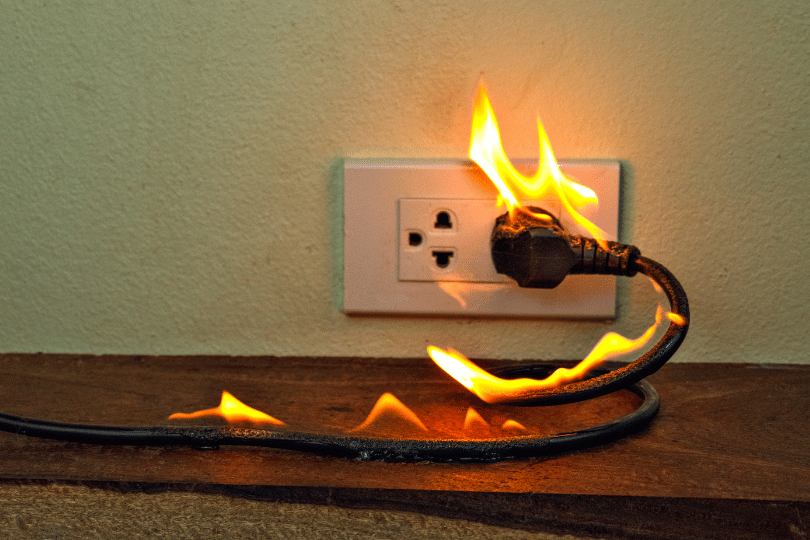How to prevent Electrical fire hazards?

Electrical fires pose a significant threat to homes and businesses, leading to devastating consequences if not addressed proactively. They can result in significant property damage, injuries, and even loss of life. However, most electrical fires can be prevented by following safe practices and being aware of potential hazards. Preventing electrical fire hazards requires a combination of awareness, good practices, and diligence.
- Use of circuit breakers and fuses
Circuit breakers and fuses are designed to prevent overloading of electrical circuits. They should be checked regularly to ensure they are functioning correctly. If a circuit breaker frequently trips or a fuse regularly blows, it may indicate an underlying issue that needs to be addressed.
- Regular inspection and maintenance
Regular inspection and maintenance of electrical systems is crucial. This includes checking for loose connections, frayed wires, and signs of overheating. If any issues are detected, they should be addressed immediately by a licensed electrician.
- Update wiring systems
Outdated or faulty wiring is a common cause of electrical fires. If your home or business has old wiring, consider updating it to meet current safety standards. Modern wiring systems are designed to handle the demands of today’s electrical appliances, reducing the risk of overheating and short circuits.
- Smoke alarms and fire extinguishers
Install smoke alarms in key areas of your home or business and test them regularly to ensure they are functioning correctly. Additionally, keep fire extinguishers in accessible locations, such as the kitchen and near potential fire hazards. Educate family members or colleagues on the proper use of extinguishers.
- Educate and train
Ensure that everyone in your household or workplace is aware of electrical safety practices. Conduct regular safety drills, discussing evacuation procedures and the location of emergency exits. Knowledge is a powerful tool in preventing and mitigating the impact of electrical fires.
- Professional installations
When adding new appliances or making modifications to your electrical system, enlist the services of a qualified electrician. DIY electrical work can lead to hazardous situations if not done correctly. Professional installations guarantee compliance with safety standards and regulations.
- Proper use of extension cords
Extension cords should only be used as a temporary solution. They should not be overloaded, and should never be run under rugs or through walls, as this can cause them to overheat and potentially start a fire.
- Proper appliance usage
Follow manufacturer guidelines when using electrical appliances. Avoid using damaged cords or appliances, and unplug devices when not in use. Be cautious with space heaters, irons, and other heat-producing devices, ensuring they are turned off and unplugged when not actively monitored.
- Avoid Overloading outlets
Overloading an outlet can cause it to overheat and potentially start a fire. It’s important to ensure that the total load on any given outlet does not exceed its rated capacity.
- Replace damaged electrical equipment
Damaged electrical equipment, such as appliances with frayed cords or cracked plugs, can pose a significant fire risk. Such equipment should be repaired or replaced immediately.
- Never ignore warning signs
Warning signs of potential electrical problems, such as flickering lights, frequent circuit breaker trips, or a burning smell, should never be ignored. These could indicate a serious issue that needs immediate attention.
Preventing electrical fire hazards is a collective responsibility that demands a proactive approach. By implementing good practices and remaining vigilant, you can significantly reduce the risk of electrical fires and create a safer environment for your home or business.